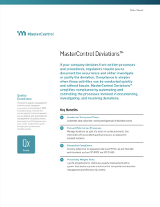
GxP Lifeline
Summertime Is a Great Time to Review Your cGMP Deviation Plans

Summertime is here! With talk of swimming pools and beach trips swirling around the water cooler, one thing is for sure: no one is thinking of product or process deviations that could go against current good manufacturing practices (cGMP) and/or halt production.
As a pharmaceutical or biomedical manufacturer, you’re always mindful of the quality of your products. Quality is integral to having a great culture at any company. No one wants a defective product to reach the patient or client, that’s why it’s important to make sure your cGMP deviation management and investigation procedures are a fundamental part of your digital quality management system (QMS). The consequences can vary from a negative impact on brand image to something far more serious — patient harm. In this time of barbecues and family gatherings, the last issue we all want to deal with is having a defective product.
Why cGMP Deviation Management Matters
In the pharmaceutical and medical device manufacturing space, product deviations entail a departure from the standard. Whether it’s a medical device, vial fill, or drug substance, a deviation occurs when the processes and the resulting products don’t conform to the standards set before the manufacturing run. Companies that have deviation management software (or a non-conformance policy in place) and a robust corrective action/preventive action (CAPA) program will be able to detect and rectify such problems before a product reaches the patient. To keep your products and processes in line with these standards, life sciences manufacturers must pay extra attention to deviation management as part of their quality management efforts.
For instance, an incident in the lab can bring a momentary halt to work, pushing the process off the standardized track set by the quality management system. Generally, the various possible non-standard events come in different forms, necessitating manufacturers to stay on top of them. A cGMP deviation may occur during sampling and testing, in raw materials, and in finished product acceptance/manufacturing. Deviations may also be triggered by customer complaints or comments when the company’s standards do not meet critical attributes as delivered per certificate. A happy client is a satisfied client!
Know Before You Act, and Act Quickly
Whether your process deviation is caused by human error, contamination, equipment or sensor malfunction, or data that is out of range, knowing what to do to correct the problem, and whether your batch can be saved, or process corrected in time to save the final product, depends on how quickly you detect it and whether you have the data to back up your decisions. Having the right statistical tools for creating the right place for deviation management, establishing effective control parameters, and continuously validating your CAPA program is very important.
Modern Quality Management Systems Simplify Deviation Management
A fully connected, digital quality management system can provide real-time work-in-progress visibility and traceability into the status of production lines, batches, lots, and operator performance. Then, if you have an effective QMS with fully integrated deviation management software in place, you can dive deeper into specific production runs to determine who is working on a specific lot, what processes are taking place, and how far along they are in the process. This will allow you more time to enjoy your favorite summertime beverage and less time worrying about your cGMP deviation program. Cheers!

